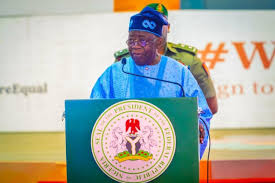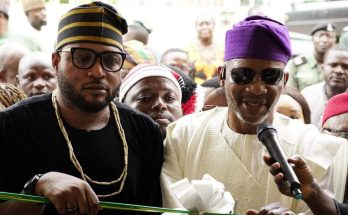The politicisation of the insecurity in Arewa is all too palpable, with a needless and protracted war that has gone on for 15 years and counting. The scourge of the terrorism unleashed on Northern Nigeria since 2009, from the budding days of Boko Haram in the North-east, through to 2015, when banditry was hatched onto the North-western part of Arewa: has continued to flare its fires across the Arewa region, burning everything on its path, decimating its development and well-being.
It has stunted development, eroded farming activities, and endangered those that venture out in search of education in both urban and rural communities. A once economically buoyant region, which held a lot of promise in agriculture, especially livestock farming, mining, etc. is fast becoming a war zone, with vast ungoverned territories where terrorists reign supreme, roaming unchallenged, unleashing mayhem with reckless abandon.
The Office of the National Security Adviser, ONSA, had reported that over 1,000 hostages have been rescued from terrorists. The legendary terrorist prone Abuja-Kaduna highway was declared safe. There have been reports of terrorist conquests across the war zone, and a picture of an improved security situation was fast developing. The Nigeria Airforce had made so many acquisitions in the last few years, and continues to make more, with the Nigerian Army building an air unit, all as efforts to combat the terrorists, and bring an end to the insecurity, especially in the North.
However, abductions along Keffi-Akwanga road, and mass killings of farmers in Zamfara and Katsina states, paint a harrowing picture that the fight against these terrorists is yielding little or no fruits. Terrorists are shown on tiktok videos and other applications, daring the military, and calling their bluff. Some have even flaunted their capacity to effectively use drones in those videos. They are getting bigger, more sophisticated, and more widespread.
The Tucanos and other sophisticated military hardware that have been purchased are not having an impact on the terrorists. There is a gap somewhere. The expenditure on military hardware is hardly commensurate with the progresses made. Before now, it was lack of military equipment, now? Not so.
Northern governors, traditional rulers, the ulama, and other stakeholders, including high profile members of the business community, must come together, under a special purpose tent, to thoroughly examine the situation, and work together, putting aside party differences, to find a lasting security solution to Arewa. The insecurity situation holding back Arewa is beginning to look like a well orchestrated pogrom, to scuttle the region’s growth and development.
If our leaders cannot put their heads together and work as one region, the solution may be farther away than assumed. The politicisation of the crisis can be seen in what is playing out between the Zamfara state governor and the minister of state for defence. Arewa needs a collaborative effort to curb the monster that has bedeviled the region for a decade and a half, and throwing accusing fingers cannot be part of those efforts.
Once Zamfara remains blighted by insecurity, the entire North-west cannot be immune to Zamfara’s affliction. The national security adviser, the director general Directorate of State Services, DSS, the two defence ministers, and the chief of defence staff, are all from Arewa. There is more than enough ‘statecraft’ at Arewa’s disposal to effectively deploy government artillery in vanquishing this monster. What is stopping us?
Since religion is Arewa’s opium, the ulama must be utilised in properly ‘brainwashing’ the people into denouncing the terrorism that society has embraced as a means of earning a living. Indulging in terrorist activities, harbouring them, aiding and abetting them, must be underlined as sinful and forbidden. The society must be sensitised aggressively and be made to abhor terrorism in its entirety.
The people must be made to conspire against the actors in the terrorism industry. The people must be made to understand that terrorism is the number one enemy to the growth and development of Arewa. The people must be made to see the picture of a lush green Arewa, full of farming activities across the length and breadth of its rich savannah, uninhibited.
A picture of Arewa with meaningful mining activities dotting the landscape of its rich mineral endowments, without banditry. The people must be made to realise how the cost of living can be drastically brought down to an affordable minimum, no matter the forex rate. The people must be made to understand that if they do not take the future of their lands in their hands, no one would do it for them. In fact, more than enough interests are waiting and ready to take it away from them, and they would become slaves in their fathers’ plantations.
Sheer might of firepower cannot do it alone. If it could, the last eight years, with a decorated military general from Arewa as president, would have seen an end to banditry and other forms of terrorism. So, there must be a collective and conscious effort by Arewa elite purposefully herding their people into sense.
This movement must be seen and treated as a ‘jihad’. We must cleanse this rot from our lands. Our forefathers did not bequeath to us an Arewa in upheaval, disarray and cataclysmic insecurity. We need an Arewa without altruistic leaders who are not driven by selfish gain but by selfless service.
Those kinds of qualities are the pillars that built the house Arewa, that was strong, independent, and we were all so proud of. Without the allure and bewitching grandeur of power in our hands, now is the time to have proper introspection of our predicament, to chart a way out of this curse. For what has befallen Arewa is, indeed, seeming like a curse.
Tahir is Talban Bauchi.




